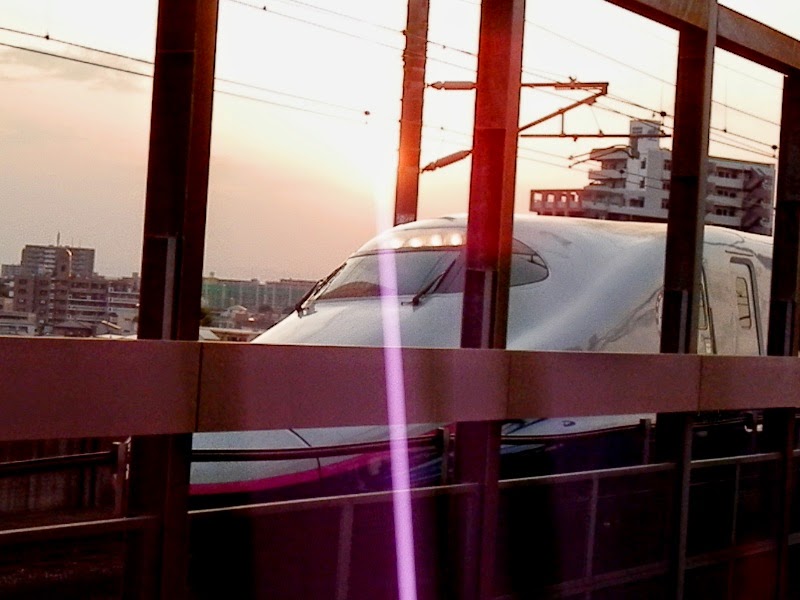Around Tokyo
Russians, Ukrainians, and Judaists
An important factor in the Ukraine issue today is apparently Judaists in Ukraine.
Before World War II, a little under one-third of Ukraine's urban population consisted of Jews[8] who were the largest national minority in Ukraine. Ukrainian Jews are comprised by a number of ethnic groups, including Ashkenazi Jews, Mountain Jews, Bukharan Jews, Karaite Jews, Krymchak Jews and Georgian Jews.Judaists in the Russian Empire were suppressed by the Russian imperial court.
http://en.wikipedia.org/wiki/History_of_the_Jews_in_Ukraine#Ukrainian_Jews
Due to divisions of Poland in 1772, 1793, and 1795, about one million Judaists came to become subject to the Imperial Russian Government. As a consequence, the Russian Empire had the largest Judaist population in the world at the time.
However, with an increase of attacks on Judaists, from 1881 to 1910, almost three million Judaists left Russia. Those who arrived at the US accounted for 70%.
On the other hand, the Judaists who remained in Russia joined the communist revolution. They wanted to defeat the Imperial Russia that had persecuted them so severely for so long. Even the wife of Lenin was a Judaist. So, there were many Russian Judaists in the leadership of the new government established by Russian communists.
But as time went by, Stalin took over power, and he started to drive out Judaists from the top echelon of the political circle of the Soviet Union. Like Hitler, Stalin also became an enemy of Judaists, though the wife of the eldest son of Stalin was a Judaist. However, it is said that what triggered this anti Judaist movement in the era of Stalin was a conflict between radical Judaists and conservative Judaists who well assimilated into the Russian society and culture. And Stalin and other Russian politicians took up this rivalry to eradicate their old rivals who were mostly Russian radical Judaists to consolidate their power base.
So, after WWII, the Soviet Union Government did not promote Judaists to leading positions of the country, treating them very badly.
Then, the USSR collapsed through the Cold War against the US, Western Europe, and Japan in 1991, again paving the way for Russian/Ukraine Judaists to get freedom, wealth, and power,
A Russian oligarch is a near-synonym of the term "business oligarch" or "business magnate," borrowed by the English speaking and western media from Russian parlance to describe the huge, fast-acquired wealth of some businessmen of theformer Soviet republics (mostly Russia and Ukraine) during privatization in Russia after the dissolution of the Soviet Union in the 1990s. Businessmen with great wealth from these countries were commonly labeled (simply) "oligarchs" in Russian regardless of whether they had real political power, as the term "oligarch" would imply. Analysts have drawn comparison between the current Russian system of oligarchs, and the system of powerful Boyars that had emerged in late-MedievalMuscovy.[1]http://en.wikipedia.org/wiki/Russian_oligarchs
There were seven powerful business oligarchs in the late 1990s in Russia, five of whom were Judaists.
There were some Judaists among Ukraine oligarchs, but they are still different from other Ukrainians.
In 1989, a Soviet census counted 487,000 Jews living in Ukraine.[74] Although discrimination by the state all but halted very soon after Ukrainian independence in 1991, Jews were still discriminated against in Ukraine during the 1990s.
According to the European Jewish Congress, as of 2014, there are 360,000-400,000 Jews in Ukraine.[77]
During the 1990s, some 266,300 Ukrainian Jews emigrated to Israel as part of a wave of mass emigration of Jews from the former Soviet Union to Israel in the 1990s.
Antisemitic graffiti and violence against Jews are still a problem in Ukraine.[88]Russians, Ukrainians, and Judaists in Ukraine are all under strong pressure from Russia. And till the fate of Judaists in Ukraine is settled, this turmoil in Ukraine might not end.
Due to the growing 2014 Ukrainian unrest, Ukrainian Jews making aliyah from Ukraine reached 142% higher during the first four months of 2014 compared to the previous year.[91] 800 people arrived in Israel over January-April, and over 200 signed up for May 2014.[91] On the other hand chief rabbi and Chabad emissary of Dnipropetrovsk Shmuel Kaminezki claimed late April 2014 “Today, you can come to Dnipropetrovsk or Odessa and walk through the streets openly dressed as a Jew, with nothing to be afraid of”.[92]
http://en.wikipedia.org/wiki/History_of_the_Jews_in_Ukraine#Ukrainian_Jews
Referring to the case of Nazi Germany, we might have to think that the sooner Judaists leave the country, the better they can live.
*** *** *** ***
Joh 5:21 For as the Father raiseth up the dead, and quickeneth them; even so the Son quickeneth whom he will.


